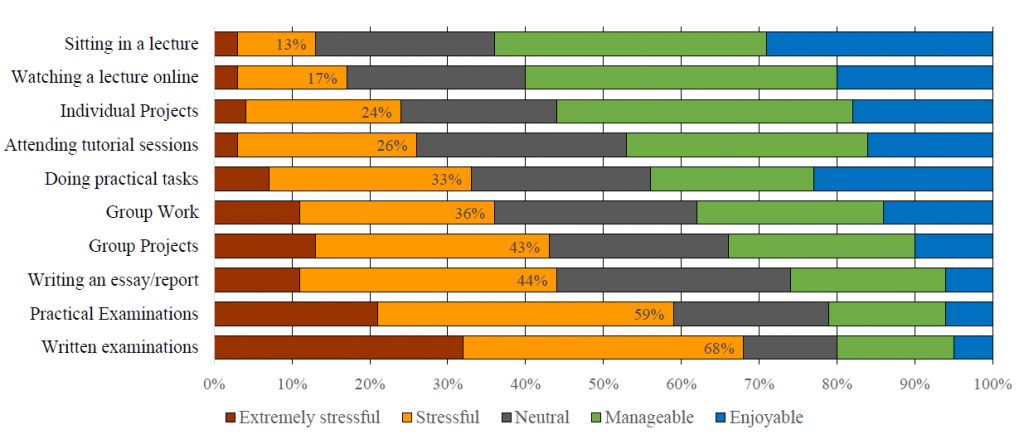In recent decades, engineering education has become increasingly complex due to, amongst others, shifts in curricula aligned to more holistic graduate competencies, staggering technological developments and globalisation. The challenge of attracting, retaining, and graduating greater numbers of students from diverse backgrounds who are able to address 21st-century engineering needs further compounds this. The consequences have been visible for engineering educators and students alike, manifesting in increasing workloads and significant stress for both. Furthermore, mental health issues related to academic stress are experienced amongst undergraduates from various disciplines, with key factors being workload, study skills, resource access and socio-economic conditions. To analyse these claims, Prof Thinus Booysen of the Department of Electrical and Electronic Engineering in the Faculty of Engineering and Dr Karin Wolff and Ms Nikkie Korsten of the Faculty of Engineering’s Dean’s Division took part in a faculty initiative to determine engineering students’ experience of academic stress.

The status of mental health and well-being of engineering students, globally, has become of increasing concern but is relatively poorly researched. Drawing on a holistic educational model, quantitative and qualitative survey results are presented. Key systemic factors are the volume, intensity, and distribution of workload, as well as the experience of “information overload” during the Covid-19 pandemic. On the affective front, students provide detailed accounts of the negative emotional impact, which, in turn, contributes to loss of productivity and confidence. The cohort-comparison analysis reveals clear trends across years of study, as well as problem- versus emotion-focused coping strategies. This faculty case study on the engineering student experience of academic-related stresses hopes to demonstrate the synergistic relationship between the systemic, affective and, ultimately, cognitive educational support domains for which engineering faculties are responsible. Suggestions are included on how to facilitate improved mental health in our engineering students.
A global picture is emerging of the impact on engineering students of an overfull curriculum, increasingly complex educational conditions and societal expectations. The discussion draws on problem- versus emotion-focused approaches to addressing the impact of stress, and suggests that there needs to be a recognition of the relationship between two such approaches.
Global literature on engineering student workload suggests that lecturers could make a difference by taking a problem-focused approach to collectively address the systemic conditions that currently appear to exacerbate students’ affective educational experience. This approach would need to take the context of globally-aligned engineering qualification standards into account which warrants further research. Given our mandate to enable the holistic development of engineering graduates, the time has come for us as engineering educators to better support mentally healthy engineering students.
Read the complete research paper: Korsten, Nikkie, Karin Wolff, and MJ Booysen. 2021. “Time for Mentally Healthy Engineering Students.” engrXiv. September 7. doi:10.31224/osf.io/ugc5q.
You can also watch the presentation at: https://www.youtube.com/watch?v=nVvBRhAZpQg




